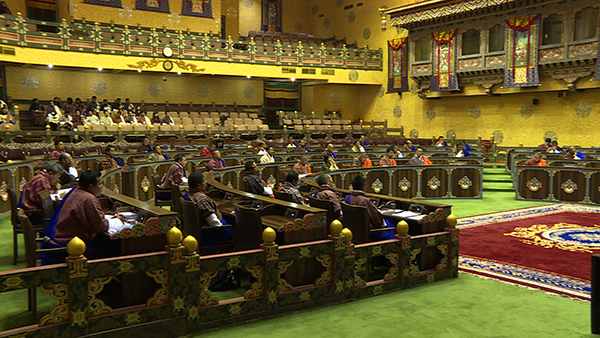 The number of companies, who agreed to extend maternity leave for their women employees, during the previous parliament session, has increased to 166 from 110 companies.
The number of companies, who agreed to extend maternity leave for their women employees, during the previous parliament session, has increased to 166 from 110 companies.
This is as per Labour ministry’s report on encouraging private sectors and corporations to increase maternity leave.
Labour Minister Ngeema Sangay Tshempo presented the report in the National Assembly, today.
Going by the report, most of the companies agreed to increase maternity leave for their employees from two to three months while 4 companies namely, Rural Enterprise Development Corporation Limited, National Housing Development Corporation Limited, Bhutan Agro Industries and Construction Development Corporation Limited, agreed to increase it to six months. And consultations are on-going with 12 DHI companies on extending the maternity leave.
“In case of DHI companies, they will be submitting three options to the board of committees. First option states, the maternity leave for female employees will be two months and next four months. They will be given 2 hours a day to feed their child with a daycare nearby their workplace, salary for a year and extend paternity leave for 10 days. In second option, they will be provided with flexi time. Maternity leave for three months will be given and mother will be send home for feeding for the next six months. And the third option, female employees will be given three months maternity leave and two hours a day for feeding for a year,” said the Labour Minister.
The National Assembly during the last session left it for the ministry to encourage private sectors and corporations to extend maternity leave.
“We have around 130 female teachers in 10 private schools across the country. Some schools agreed to extend maternity leave up to 3 months and some for four months. In all 10 schools, we have around 10 women who will give birth in 2017. We promised the private schools for financial support for female teachers who are availing themselves of maternity leave. If teachers are of twelfth grade, we will be paying them Nu 12,000 and for graduates Nu 15,000 for the remaining 3 months.”
However, the Opposition Leader expressed dissatisfaction over ministry’s oral report as there was no written document to deliberate on the issue.
“There is no written report and everything is based on oral agreement and volunteerism. So it’s going to take another few years to implement the policy. I am requesting whatever labor minister presented today, if we can have written copy each it will be appropriate for us to deliberate on the issue. Otherwise we will lose track of what has been discussed, like we did not get half the discussion today. Most of the discussions are numerical calculations and it is hard to remember,” said Dr. Pema Gyamtsho.
Today, there are over 600 female employees between age group of 18-45 working in different private sectors across the country.









